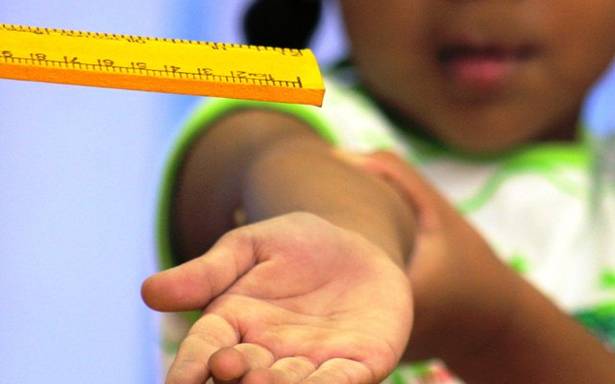As community violence has increased in Trinidad and Tobago in recent years, parents have been concerned about the health and safety of their children. Elder Associates Limited acknowledges the importance of helping children live safe and healthy lives. We also understand that health and safety requires parents to help children to make smart choices and follow guidelines provided by adults who care for their welfare. However, children with emotional and behavioural disabilities may find it difficult to follow instructions. These children can present as a challenge to parents, who may be frustrated or feel hopeless in attempts to provide effective discipline. At times, parents will view corporal punishment as an effective and immediate way to address behavioural problems. In response to these concerns, Elder Associates Limited has established the following stance on use of corporal punishment.
WHAT IS CORPORAL PUNISHMENT?
Corporal punishment is defined by the United Nations Committee on the Rights of the Child as the following:
Any punishment in which physical force is used and intended to cause some degree of pain or discomfort, however light. Most involves hitting (smacking, slapping, spanking) children with the hand or with an implement – a whip, stick, belt, shoe , wooden spoon etc. But it can also involve, for example kicking, shaking or throwing children, scratching, pinching, biting, pulling hair or boxing ears, forcing children to stay in uncomfortable positions, burning, scalding or forced ingestion (for example washing children’s mouths out with soap or forcing them to swallow hot spices).
EAL’s Statement on Corporal Punishment

Elder Associates Limited
Statement Regarding Corporal Punishment
“Elder Associates Limited clinicians and staff do not endorse use of corporal punishment for discipline of children. This stance is based on the United Nations Convention on the Rights of Children, Article 37 on Human Rights Standards and Corporal Punishment of Children. Elder Associates Limited views use of corporal punishment having long-term effects that do not benefit the well-being and healthy emotional development of children.”
ALTERNATIVES TO CORPORAL PUNISHMENT
Elder Associates Limited recommends that parents and caregivers learn alternatives to corporal punishment and more effective approaches to discipline. Positive reinforcement and negative reinforcement have been found to be the most effective methods to support children in the development of positive behaviour. Open communication with children about expected behaviours and safety is also critical to promoting healthy child development. When expectations are not met, discipline should be consistent and appropriate for the child’s
age. Additionally, consistent supervision, love and attention are crucial to the promotion of healthy emotional development for children.
COUNSELLING SUPPORT
Elder Associates Limited is committed to supporting the development of the above parenting skills: positive reinforcement, open communication, consistent supervision and attention. These skills can be supported through individual and family counselling.
Elder Associates Limited has also partnered with community organizations; such as GRAPES for Life (http://grapesforlife.com) to support community education, workshops and social media initiatives to build effective parenting skills. We believe that this approach will enhance the well-being of families in Trinidad and Tobago.
Note: In the case that parents have been using corporal punishment, parents will be encouraged to use alternative means of discipline. Additional assessment will be provided to ensure that incidences of child abuse are not occurring. It is the policy of Elder Associates Limited to report any cases of child neglect or abuse to the relevant authorities.

